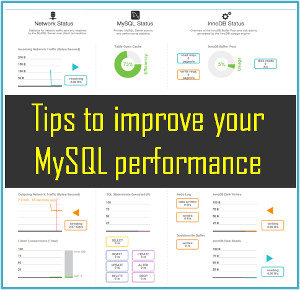Data Protection Tips: How To Keep Your Financial and Personal Data Secure
Are you doing enough to safeguard your financial and personal data from cyber threats? According to a Hiscox Cyber Readiness Report cited by CNBC, hackers stole an estimated 2 billion personal records in 2016.
Whether it's your Social Security number, credit card number or simply your contact information, you must take a proactive approach towards securing your data. When sensitive data such as this is compromised, it's often sold on the black market to the highest bidder. So, consider the following safeguards to protect your financial and personal data.
Clear Data From Old Hard Drives
Disposing of hard drives and other e-waste in the trash is illegal in most jurisdictions due to its harmful effects on the environment. Hard drives contain heavy metals that, when dumped, can leach toxins into the environment. As a result, millions of people simply keep their old hard drives even if those drives contain sensitive data.
Unfortunately, this creates a serious security risk. If someone steals or otherwise acquires your old hard drive, they may extract sensitive data from it. To prevent this from happening, use a magnetic disk cleaner or software to purge data from your old hard drives. Once clear, contact your local hazardous waste disposal center for information on where to dispose of the drives.
Encrypt Data
Encryption is arguably the single most effective way to safeguard your data. As explained by TechWorld, this involves the use of a special algorithm to encode data so it can't be read. Encryption turns the respective data into a scrambled mix of characters. To decipher it, you must use the matching encryption key.
There are several solutions available for encrypting your data. Apple's MacOS operating system, for instance, has a built-in file encryption tool called FileVault. For certain versions of Windows, you can encrypt files or entire folders by right-clicking the file or folder and selecting Properties > Advanced > Encrypt contents to secure data. Alternatively, you can use third-party encryption software like BCipherShed or BestCrypt.
Use a VPN
While we're on the topic of encryption, it's also recommended that you use a virtual private network (VPN) when browsing or using the internet. The aforementioned solutions will encrypt data stored on your computer but not data transmitted over the internet. This is where VPNs come into play.
A VPN is a service that encrypts your internet traffic; thus, offering an additional level of protection for online users. You'll still need your regular Internet Service Provider (ISP). However, all of your internet traffic will also go through the VPN.
Update Your Operating System
Running an outdated operating system is just asking for trouble. According to WebTitan, 7.4 percent of businesses still use Windows XP. Of course, Microsoft discontinued support for Windows XP back in 2014.
Hackers often target computers running outdated operating systems because they contain exploitable vulnerabilities. While downloading a new update can be tedious and time-consuming, it's critical to keeping your data secure.
Install Protection Software
The right endpoint protection software can make a world of difference in safeguarding your data. Basically, this software is designed to protect computers, smartphones, tablets and other "endpoints" from cyber threats.
Like operating systems, however, protection software is only effective if it's up to date. When new vulnerabilities and threats are discovered, developers will typically release a new update. Therefore, you must update your protection software in a timely manner to receive the highest level of protection.
Secure Your Wireless Network
Consumers and business owners alike should secure their wireless networks. There are two specific ways to secure a wireless network. First and foremost, you should encrypt your network using Wi-Fi Protected Access (WPA). This is a stronger and more secure encryption standard than Wired Equivalent Privacy (WEP).
Additionally, you should configure your wireless network so it doesn't broadcast the Service Set Identifier (SSID). This way, your network won't automatically show up on the list of available wireless networks. If someone wants to connect to it, they'll have to manually enter the name.
By utilizing the tips outlined here, you'll create a more secure environment for your financial and personal data.



 Sia
Sia






